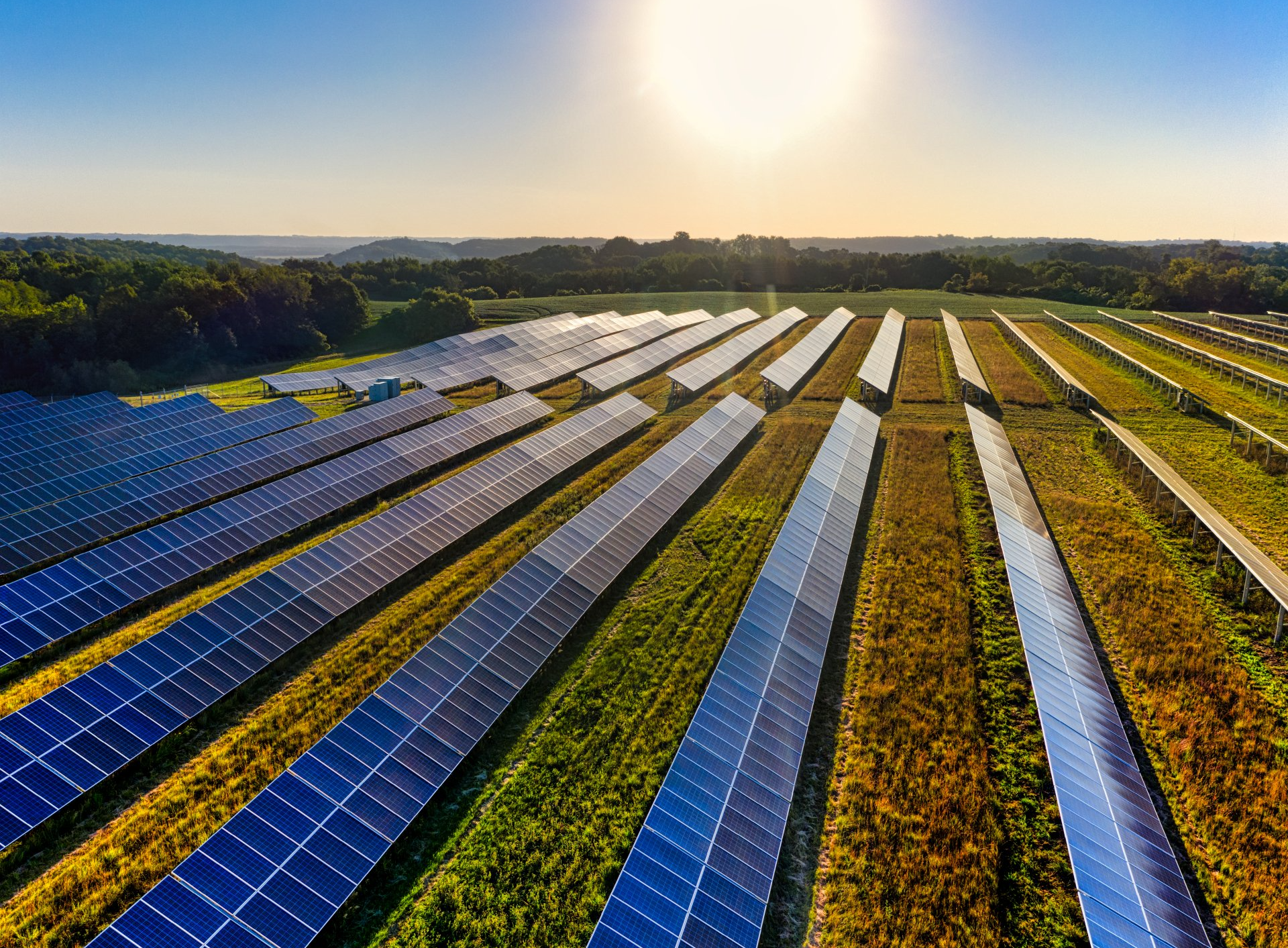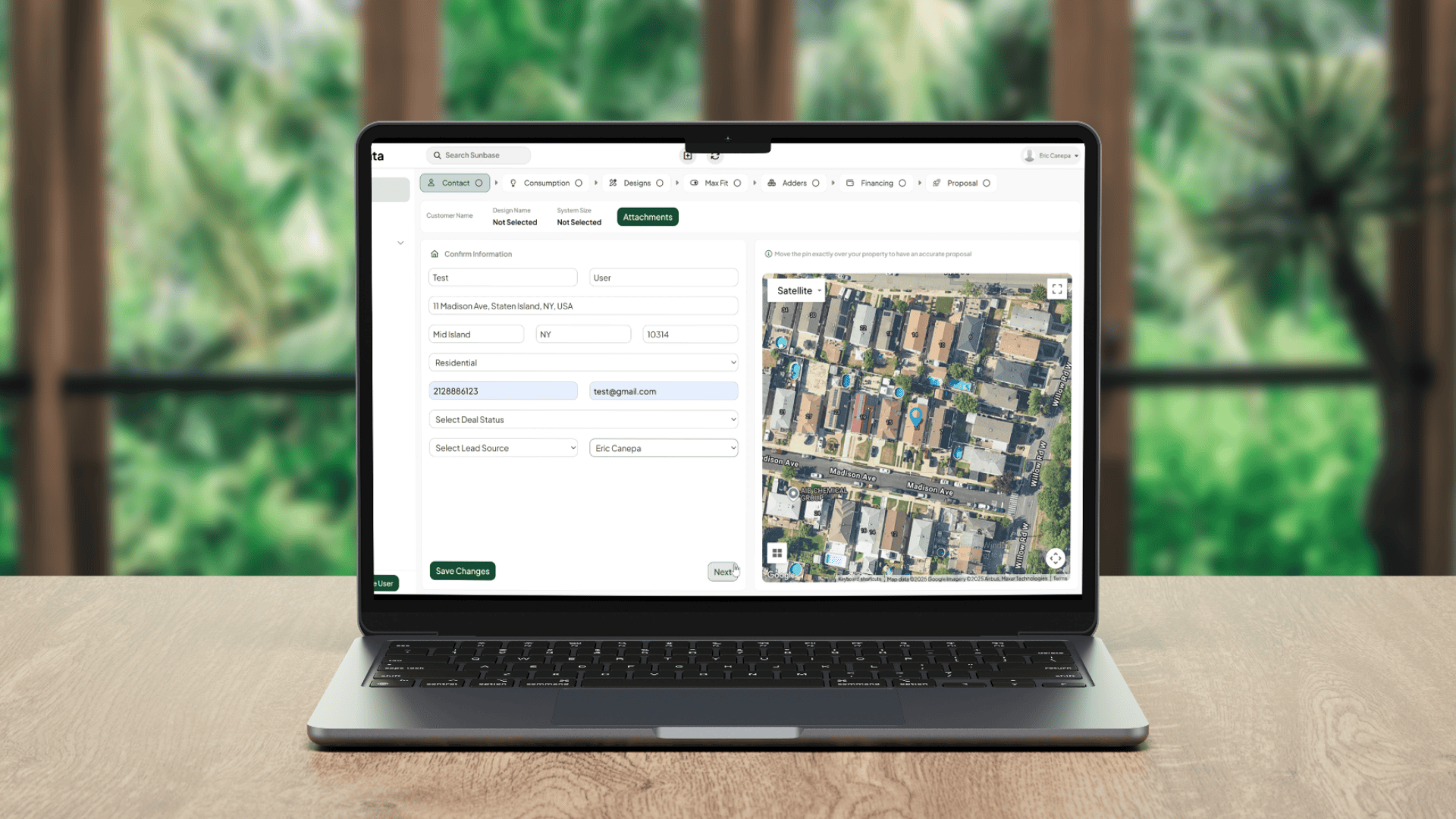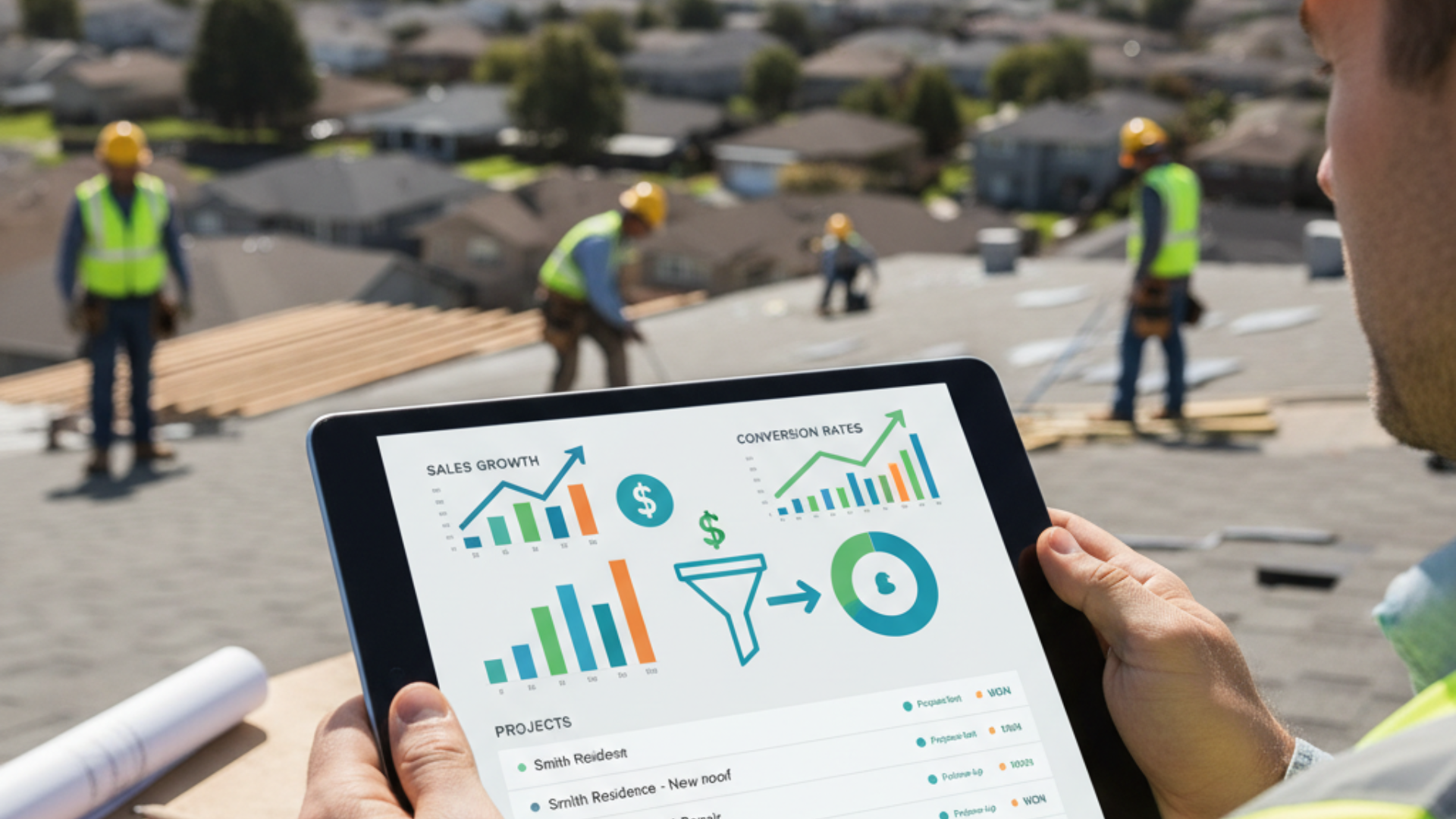July 29, 2022
As the cost of solar energy production continues to drop, solar farming is becoming an increasingly attractive business venture. Not only does solar farming provide a sustainable and renewable source of energy, but it can also be lucrative.
With the right planning and execution, a solar farm can be a profitable investment for your business. In this blog post, we'll explore the basics of starting a solar farming business, how you can start a solar farm and provide some tips for success.
Read on to learn more!
What is solar farming?
Solar farming is the business of owning and operating a solar power plant, usually located on agricultural land. Solar farms generate renewable electricity that can be sold to utilities or other businesses. Solar farms can also provide benefits to the local community, such as creating jobs and reducing carbon emissions.
Solar farms are typically large-scale projects with photovoltaic power structures that require a significant upfront investment. However, they can offer a number of advantages over traditional power plants, including lower operating costs and pollution levels. Solar farms can also help to diversify the energy mix in a given area, providing a valuable source of clean energy.
Let's discuss solar farming in detail. Keep reading!
Pros of solar farming
Let's first discuss the Pros of solar farming
Requires Less Land
One of the biggest pros of solar farming is that it requires very little land in comparison to other forms of energy generation like wind or hydropower. Solar farms can also be built on land that is unusable for other purposes, such as abandoned mines or brownfields.
Creates jobs
Another pro of solar farming is that it creates jobs. Solar farms require a lot of people to build and maintain them, which can help boost local economies. They also tend to be located in rural areas, where job opportunities are often scarce.
Positive impact on grid
Solar farms can also have a positive impact on the electricity grid. When solar panels generate electricity, they send it back into the grid, which can help reduce demand during peak hours and improve overall grid stability.
However, solar farms do have some downsides.
Cons of farm solar projects
Expensive to build and maintain
They can be expensive to build, get solar panels installed and maintain them. Solar energy farm requires a lot of sunlight to operate effectively. Solar farms can also have a negative impact on the environment, as they can disturb natural habitats and disrupt ecosystems.
Require a lot of sunlight
They also require a lot of sunlight and absorb energy to operate effectively, which means these solar energy projects are not well-suited for locations that are cloudy or shady.
Overall, solar farming is a promising technology with a lot of potentials. However, it's important to weigh the pros and cons carefully before deciding if it's the right choice for solar developers to start this type of solar business.
Do you have any questions or comments about solar farming? Let us know in the comments below! And be sure to check out our other blog posts, and for more information about How to Write Proposal For Solar Farm?
How to start a solar farm business?
These solar panel farms are unlike small-scale solar facilities, as they require a lot of attention, management, and maintenance. There are a few things you need to know to start a utility-scale solar farms:
Research
You need to research the solar market and find out if there is a demand for solar power in your area. This can be done by talking to local businesses and government officials, as well as looking at data from the Solar Energy Industries Association (SEIA).
Develop Business Plan
You need to develop a business plan. This should include an analysis of the costs and benefits of starting a solar farm, as well as a marketing strategy for selling the power you generate.
Finance
After a business plan has been developed, you need to find financing for your project. This can be done through grants, loans, or private investors, or can be funded by yourself.
Purchase equipment
Then, you need to purchase the land, design your PV system using solar design software and according to that, buy equipment necessary to start your solar panel farm.
Take Permits and Approvals
Finally, you need to obtain the necessary permits and approvals from local authorities.
By following these steps, you can start a successful solar farm business. Good luck!

Costs associated with starting a solar farm business
Whenever you start a venture, it is important that you know how deep to dip your elbow before going all in; in terms of costs, you might acquire during the process of setting up.
Here we have for you all the costs that you are likely going to incur while starting your solar farm business-
Cost of Acquisition
The cost of starting a solar farm business can vary depending on the size and location of the farm. Solar farms can range in size from a few acres to hundreds of acres.
The costs associated with acquiring the land, installing the solar panels, and connecting to the grid can vary significantly depending on these factors.
In addition, some states offer tax incentives for solar farms, which can reduce the upfront cost of starting the business.
Cost of Solar panels
Assuming that you have already secured the land and necessary permits, the next step is to purchase or lease solar panels.
The price of solar panels has been dropping steadily in recent years, making them more affordable for businesses. However, they still represent a significant upfront cost.
In addition to purchasing or leasing solar panels, you will also need to invest in inverters, batteries, ground-mounted solar arrays, and other solar equipment to store and convert solar energy into electricity.
Cost of connecting to Grid
The final step is to connect your solar farm to the grid. This process can be expensive and complicated, depending on the distance of your farm from the nearest power lines. You will also need to obtain an interconnection agreement from your local utility company.
What can you do to handle these costs?
Solar farms can be a costly investment, but there are several ways to offset these costs. Federal and state governments offer tax incentives for businesses that install solar panels.
In addition, some utilities offer net metering programs, which allow solar farms to sell excess electricity back to the grid at a premium rate. With careful planning and execution, a solar farm can be a profitable business venture.
Do you have any experience with solar farms? Are you thinking of starting your own business? Let us know in the comments below!
Things you need to consider before starting a solar farm business
There are a few things you need to consider before starting a solar farm business.
- The amount of land you will need. Solar farms can range in size from a few acres to several hundred acres.
- The amount of money you will need to invest. Solar farms can cost solar farmers millions of dollars to build.
- Then, you need to consider the regulations surrounding solar farms. Solar farms are subject to strict regulations at the state and federal levels.
- The next thing you should do is research the market for solar farms in your area. Find out what the competition is like and how much demand there is for solar power. This will help you determine if starting a solar farm business is the right decision for you.
- Once you've done your market research, it's time to start planning your business. You'll need to create a business plan and secure funding if needed. If you have the land and the money, then you're well on your way to starting a solar farm business.
Just make sure to do your homework first so that everything goes smoothly.
If you're thinking about starting a solar farm business, these are just a few of the things you need to keep in mind. With careful planning and execution, your solar farm can be a success.
Challenges you will face when running a solar farm business
When you're running a solar farm business, there are a few challenges you might face.
- You need to make sure that your solar panels are installed correctly and that they're getting enough sunlight.
- You need to maintain the equipment and keep it in good working order.
- You need to find ways to market your business and attract customers.
However, if you're prepared for these challenges, then running a solar farm business can be a very rewarding experience.
Tips for success if you decide to start a solar farm business
If you're thinking of starting a solar farm business, there are a few things you should keep in mind to ensure success.
Clear understanding
It's important to have a clear understanding of the market. Solar farms can be highly profitable, but only if there's demand for the power they generate.
Make sure to do your research and feasibility studies before investing any money.
Location
Having a good location is another crucial thing to focus on. Solar farms need large tracts of land with little or no shading, so make sure you have access to such land before proceeding.
The closer your farm is to population centres, the better off you'll be.
Quality Equipment
Don't skimp on the quality of your equipment. You'll need high-quality solar panels and inverters to maximize your power output.
Investing in top-of-the-line equipment will pay off in the long run.
Solid business plan
Have a solid business plan. This is important for any business, but it's especially crucial for a solar farm.
Make sure you know exactly how much money you need to get started, what your operating costs will be, and how you'll market your power to potential customers.
Keep in mind the future of the industry
And remember to always keep an eye on the future of the solar industry. Solar energy generation is constantly evolving, so it's important to stay up-to-date on the latest technology and trends.
This will help you make the best decisions for your business and ensure its long-term success.
By following these tips, you'll be in a great position to succeed in the community-scale solar farm industry.
With a clear understanding of the market, quality equipment, and a solid business plan, you can be well on your way to generating clean, renewable energy for years to come.
Conclusion
Solar farms are a great business opportunity with many potential rewards. With the right location, equipment, and management, a solar farm can be a very profitable enterprise.
There are many factors to consider when starting a solar farm business, but with careful planning and execution, it can be a very successful venture.
We hope this was helpful. If you have any questions, feel free to reach out in the comments below.
What is Sunbase?
Sunbase software is an all in one solar software for solar businesses and solar professionals. It has a suite of tools like Solar proposal software, solar design software, solar CRM, solar project management software, etc. Contact Sunbase to know more and book a demo session!
One Platform. Zero Chaos. Run Your Entire Business in One Place.
Sunbase replaces your CRM, proposals, scheduling, job tracking, and reporting tools — all inside one clean, connected platform.
About Sunbase
The All-In-One Platform to Run Your Entire Business
Sunbase helps you organize operations, streamline daily workflows, and manage everything - from first customer contact to final project deliver- in one connected system.
Our Mission
- Organize your business.
- Optimize your workflow.
- Automate what slows you down.
Why Businesses Choose Sunbase
One Connected Workflow
Replace scattered tools and manual processes with a single platform that brings together your team, tasks, customers, jobs, and performance data.
🌎 Global Presence
Serving the United States, Canada, India, LATAM, Australia, and 10+ international markets.
👥 11,000+ Users
Trusted by contractors, installers, project managers, sales teams, and field technicians.
🏗️ Built for All Sizes
From small contracting teams to fast-growing enterprises, Sunbase adapts to your workflow.
Useful Links For You
Stop Managing Your Business Manually. Automate It.
Sunbase automates workflows, reduces mistakes, and helps your team get more done - without hiring extra staff or juggling multiple tools.











